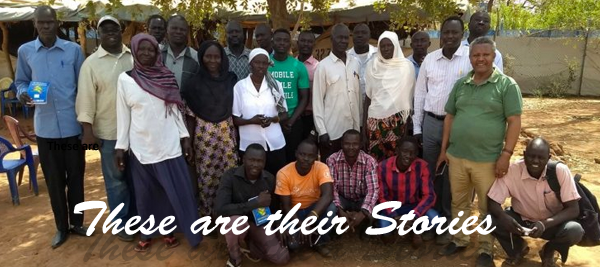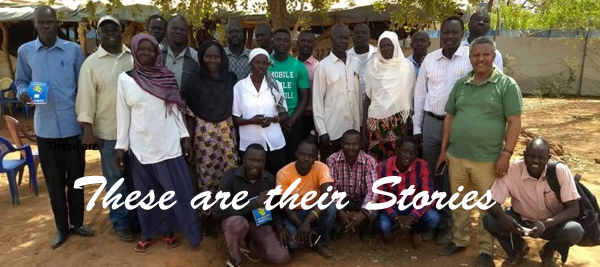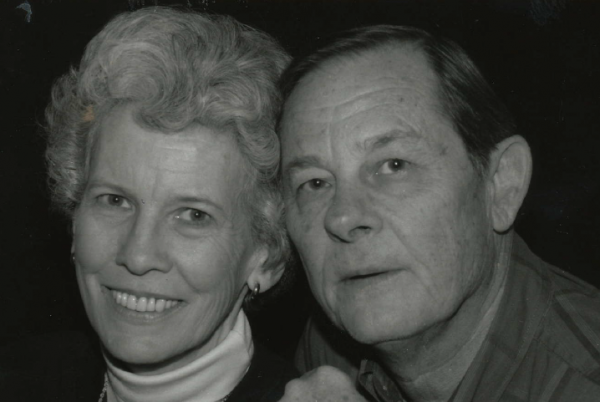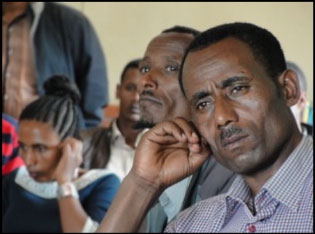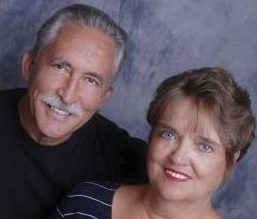Elizabeth grew up in a small town not too far from the capital city of Addis Ababa. A godmother-type figure was the one who raised her while her parents worked. She remembers her guardian taking her to church at a very young age. When she was a little bit older she was able to move back home to live with her parents and siblings. One day a church opened up next to their house. She remembers that they were singing. They were familiar tunes, songs she remembered hearing as a very young child. Intrigued, she went over there by herself, if only for the music. For two years she kept going back, drawn especially to the singing. One day the pastor was preaching from Romans 12 (“Rejoice with those who rejoice, mourn with those who mourn”). Something stirred in her heart with those simple words and she immediately accepted Jesus as her Savior upon hearing them. She was 12 years old. Her first work as an evangelist was to her own family.
Read moreLike many places in Africa, Nigeria operates regionally by tribe. There are “Muslim” tribes and there are “Christian” tribes. Whoever is dominant in that region maintains the power. Stephen was born in the north where the power belongs to the Muslims. That means that the Muslims have a say in what kind of job one is allowed to have once he reaches age. Stephen grew up with a military father and an Anglican mother. From the time he was young he knew he wanted to help people. He thought that meant he would become a doctor someday. However, the Muslims in his area would not allow Christians to have “professional” jobs. Not sure of the options that he had, he discovered that he had an uncle living in the south. His uncle took him under his care and became Stephen’s guardian. Stephen was able to get an education in the south. His uncle’s Christian influence encouraged Stephen to walk away from medicine and begin a journey toward studying to be an Anglican priest.
Read moreFrequently I ask people to name the leader who has personally influenced them the most. People typically respond describing leaders who are neither famous nor incredibly successful. In fact, they often talk about leaders who would not even be considered leaders by conventional definitions. Yet these leaders left an indelible mark. They bring to mind the Apostle Paul’s image of “treasure in jars of clay” (2 Corinthians 4:7). Common on the outside, but the content is priceless. My mother was one of them.
Read moreWhen participants complete all eight modules of Freedom to Lead’s The Garden Project (a four-year investment that involves training and transference to another generation of leaders), they receive a certificate from Belhaven University. It’s really just some nicely printed words on a piece of paper. Or is it?
Read moreMarketing specialists tend to confuse me. Their discipline is often made to seem impossibly complex. Is there a simpler way to promote our brand? One branding expert says “Yes!” He believes our most powerful marketing tool is our own story. So we’ve given it a try. In Building a StoryBrand, Donald Miller provides the basic building blocks of a good marketing story.1 He wrote, “Here is nearly every story you see or hear in a nutshell: a CHARACTER who wants something encounters a PROBLEM before they can get it. At the peak of their despair, a GUIDE steps into their lives, gives them a PLAN and calls them to ACTION. That action helps them avoid FAILURE and ends in a SUCCESS.” This kind of story helps our customers not to burn too many calories in an effort to understand o ur product.
Read moreReal People With Real Stories “Grace” is 30 years old. Every week she walks on rough roads through mountainous terrain for 25 miles in order to reach the community for Jesus. She is persecuted for her faith, but she persists in her ministry because her calling to the unreached is great. “Ian” worked among an unreached people group. He was one of the very few Christ followers that had made contact with these people. “Jerry” was building into Ian, developing him as a leader in order to grow the church there. Last month, Jerry’s phone alerted him that Ian was calling, except when he answered it wasn’t Ian. The person on the other end had to deliver the bad news that Ian had been killed in a car accident. Jerry lost not just a friend that day, but one of his strategic leaders in his network. With Ian now gone, who is going to carry on this work? These are real people with real stories. These are the people Freedom to Lead International has interacted with on the ground in Kenya this month. They are doing amazing work, but they are under-resourced. A Message For You FTL in East Africa Reaching the Unreached This month we have been meeting a network that spans nine countries in East Africa. They have requested Freedom to Lead International to provide our leadership development program (The Garden Project) for thousands of leaders throughout this large ministry that focuses on unreached people. After 40 of
Read moreThe 2020 Vision Statement of Freedom to Lead: In five years we will see 5000 storycentric leaders in 25 under-resourced countries being transformed into competent Christ-centered leaders. For the FTL Summer Blog Series, we are unpacking our Vision Statement for the next five years. These past couple of weeks we have been looking at the “Freedom to Lead” part. We examined where we get this idea of “freedom.” Today we are looking at the numbers.
Read moreJim Bowman, communication visionary and founder of Scriptures in Use, has put another dent in the universe. Jim was a successful advertising executive with Tucson Newspapers. His wife Carla was a tenured teacher in the Tucson school system. They retired from their careers in 1987 and went as missionaries to serve the native peoples of Latin America.
Read moreWho are Oral Learners?
Statistics conservatively suggest that more than 70% of all people in the world today – more than 2 of every 3 – are “oral learners.” “Oral learners” is not a familiar term. When I use it, some people look at me and say, “Do you mean ‘moral learners?”
No, “oral learners.” A simple dictionary definition of an oral learner is one that relies upon spoken rather than written communication. Before writing was invented, everyone lived by spoken communication. They read nothing, took no notes, never looked anything up. For those with papers due this week, that sounds like a pretty sweet deal.
Read moreSebastian (fictitious name) met us soon after the border officials had checked all our necessary papers and approved us for entry. For several days, Sebastian led us on a whirlwind tour of the church in mainland China. He told us stories about untold suffering. Along the way, Sebastian recounted his own personal journey as a Christian leader. Born into a Christian family in 1928, Sebastian’s father served as pastor of several churches. Sebastian followed in his father’s footsteps and became a noted church leader in southern China. As his leadership role became more prominent over the years, Sebastian faced increasing scrutiny from the Mao system. Unwilling to compromise his commitment to lead an “unregistered” church, he was arrested and served hard labor for twenty-three years in a communist prison camp. He was finally released when he was sixty-seven years old. Sebastian was faithful to his leadership calling. With a sense of satisfaction, he said, “Although I permanently lost my position and my personal influence, the church in China today is flourishing.” Sebastian’s story exemplifies leadership in the suffering church that may call for biblical alternatives to popular western leadership models.
Read more